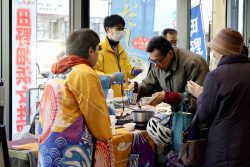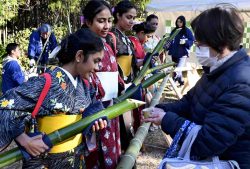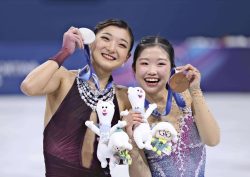Saga: Southeast Asian Players Join Pro Baseball Team in Japan; Athletes Come from Indonesia, Sri Lanka, Singapore
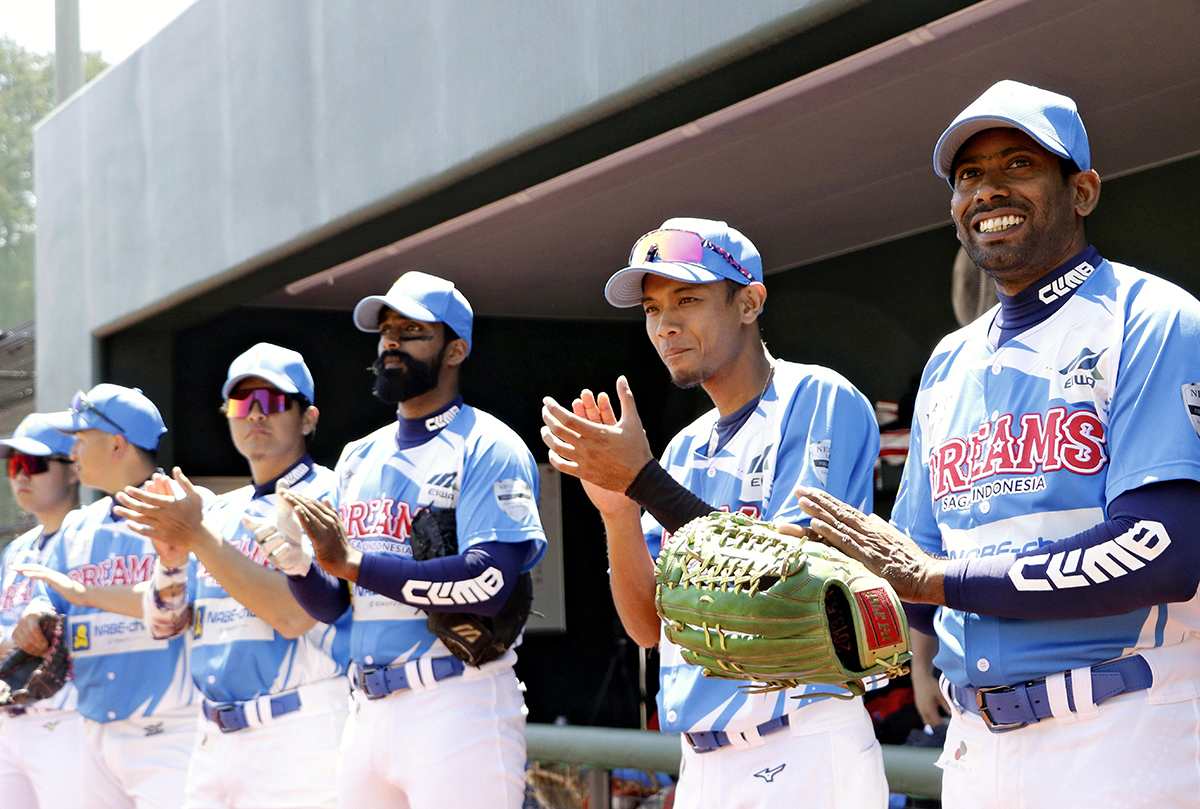
Members of the Saga Indonesia Dreams line up on the field in Takeo, Saga Prefecture, on April 13.
16:46 JST, June 14, 2024
TAKEO, Saga — A baseball team primarily composed of players from Southeast Asian nations has been competing in Kyushu’s regional pro league. This season, the Saga Indonesia Dreams joined as an associate member of the independent Kyushu Asia League. The players are pursuing their dreams in hopes of promoting baseball in their home countries and furthering their own development.
On April 13, the Dreams’ season opener against the Miyazaki-based Miyazaki Sunshines took place at Hizeshin Stadium in Takeo, Saga Prefecture. Cheers erupted from the Dreams’ bench and stands whenever their players made a good play. In the end, the Dreams were routed 17-0. Still, a total of 3,800 people showed up at the game and an event held near the stadium, so there was clearly a lot of interest.
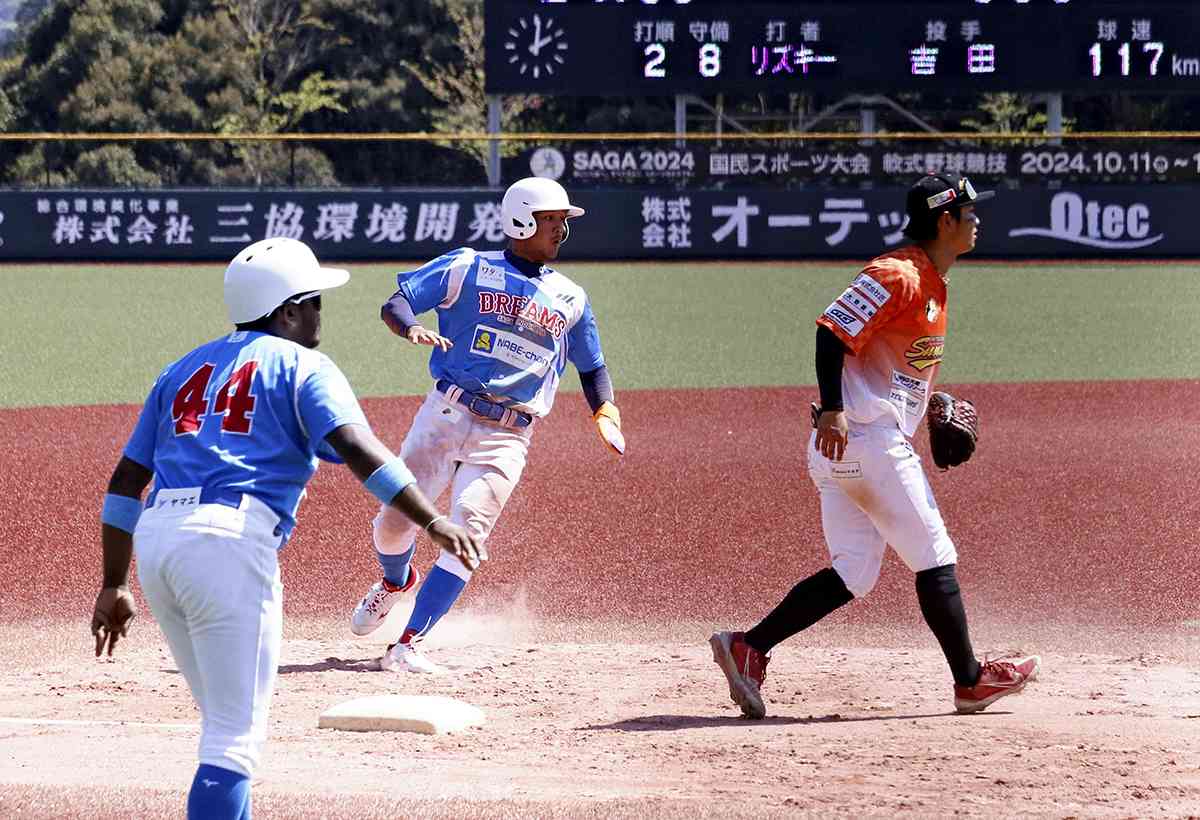
Members of the Saga Indonesia Dreams, in light-blue uniforms, play in the opener against the Miyazaki Sunshines at Hizeshin Stadium in Takeo, Saga Prefecture, on April 13. On the day, they lost 17-0.
Yuji Fukuhara, involved in publishing amateur baseball magazines in Japan, participated in activities to promote the sport in Indonesia, which led him to founding the team. Fukuhara, now the president of the team, decided to join one of the independent leagues in Japan so that the team could compete at a high level.
An independent baseball league is a professional league that is independent from the Nippon Professional Baseball Organization. The Kyushu Asia League, which consists of five teams, is one such league. Fukuhara decided to base his team in the Saga Prefecture cities of Ureshino and Takeo because Saga previously had no professional baseball teams and those two cities were supportive of his efforts.
The players and coaching staff of the Dreams currently comprise 24 individuals from Indonesia, Sri Lanka, Singapore and Japan, of whom 19 are foreigners aged in their 20s to 40s. None of these countries, other than Japan, have professional baseball teams of their own. Therefore, prior to joining the Dreams, the players from these countries worked as civil servants or company employees while actively playing baseball in local clubs.

Team captain Rizki Ramadhan, a 38-year-old outfielder from Indonesia, learned baseball when he was living in Japan from ages 9-13 due to his parents’ work. Although he dreamed of becoming a professional baseball player in Japan, the lack of opportunities to pursue baseball after returning to Indonesia led him to give up on his dream. While working at a poultry farm, he continued to play actively for the Indonesian national team. It was during this time that he received an offer to join the Dreams and decided to return to Japan, although his wife and children remained in Indonesia.
Ramadhan acknowledges that his time as an active player is limited.
“I’d like to learn as much as I can from Japanese baseball, then help young players develop when I return to Indonesia,” Ramadhan said.
Roy Oktavianto, a 24-year-old pitcher who was once selected for a state-level team in Indonesia, primarily works as a police officer. He had some reservations about leaving his homeland, but he took a leave of absence to come to Japan, hoping to hone his pitching skills.
“I’d like to play for Indonesia against strong countries like Japan some day,” he said
The baseball team’s operations largely depend on income from sponsorship contracts with local hot spring inns and other businesses. Players who came to Japan alone live together in a dormitory in Ureshino, provided by the sponsoring companies. The players’ contracts last for about half a year, until the end of the season, with a salary of about ¥1.5 million.
Saga Prefecture is home to an abundance of tourist-attracting features and industries, including hot springs, ceramics makers and more. Shoichi Yamashita, the general manager of the baseball team, discussed his aim to use this to get more support for the team. He said, “Saga has charms that people all over the world can appreciate. That means we can look overseas to find sponsors.”
Fukuhara said, “We’d like to support the aspirations of the players who have come to Japan to chase their dreams. As a team, we all want to make these dreams come true.”
For this team, the unprecedented challenge is just beginning.
Team’s scout aims to change negative image of baseball
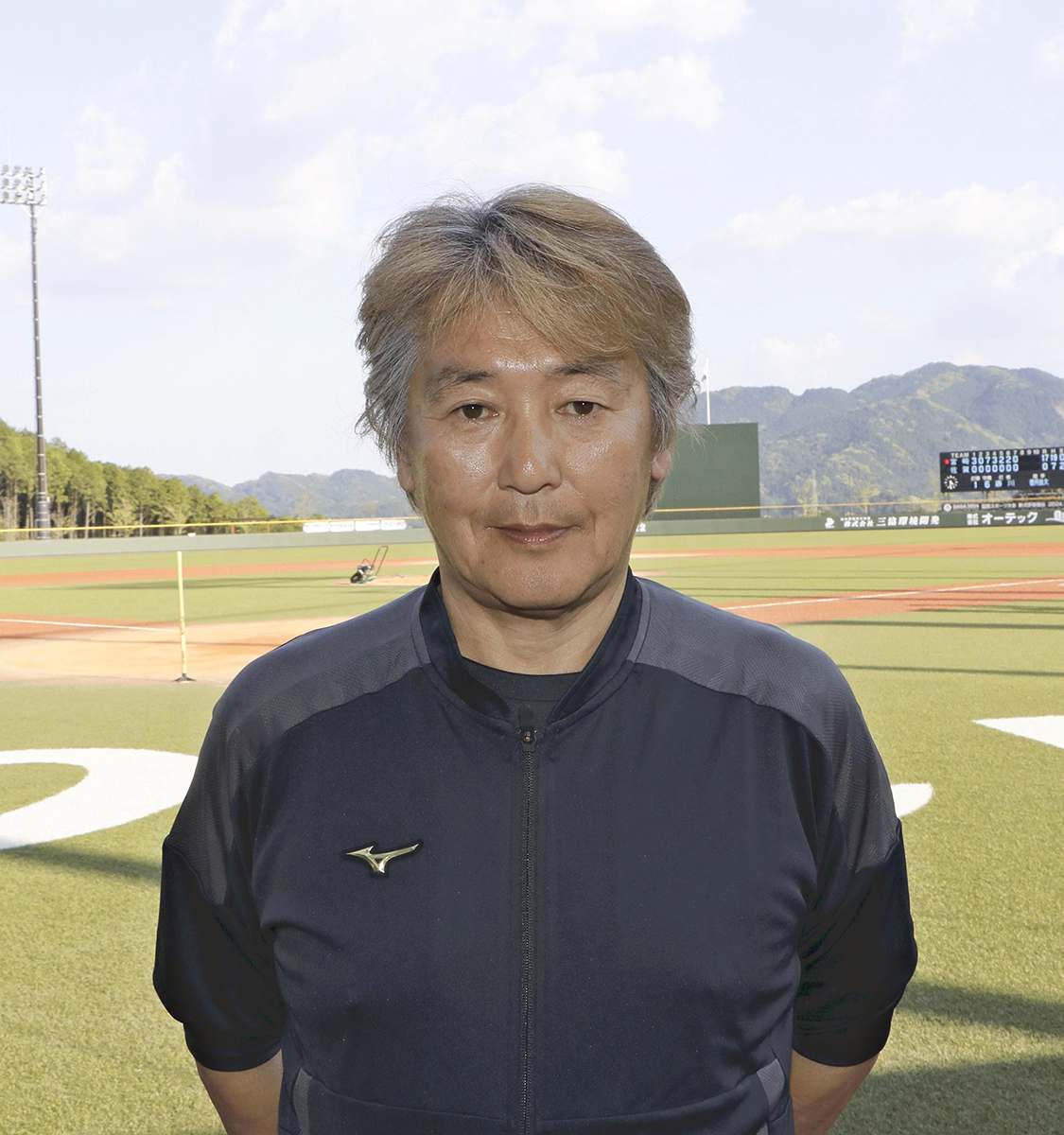
Kazuto Nonaka
Kazuto Nonaka, 62, personally scouted all the foreign players for the Dreams.
Nonaka is a former manager of the Indonesian national baseball team and even played in Japan’s National High School Baseball Championships. However, during his university days, he could not get along with its baseball club and gave up on playing professionally or for corporate teams. After graduating, he worked several different jobs in Japan and the Philippines. In 2001, he moved to Bali, Indonesia, where he has dedicated his life to coaching baseball while running a tourism business.
In Bali, Nonaka began teaching baseball to local children, who quickly improved their skills under his Japanese-style coaching. He became known around the country for his coaching, leading to his later appointment as the manager of the Indonesian national baseball team.
The athletes who play for the Dreams are promising talents from various countries whom Nonaka noticed during his tenure as manager of the Indonesian national baseball team.
In Southeast Asia, baseball is regarded as something close to useless, Nonaka said. “I want to set the Dreams on the right track and change that way of thinking,” he said.
Related Tags
Top Articles in Features
-

Sapporo Snow Festival Opens with 210 Snow and Ice Sculptures at 3 Venues in Hokkaido, Features Huge Dogu
-

Tokyo’s New Record-Breaking Fountain Named ‘Tokyo Aqua Symphony’
-

Tourists Flock to Ice Dome Lodge at Resort in Hokkaido, Japan; Facility Invites Visitors to Sleep on Beds Made of Ice
-

High-Hydration Bread on the Rise, Seeing Increase in Specialty Shops, Recipe Searches
-

Heirs to Kyoto Talent: Craftsman Works to Keep Tradition of ‘Kinran’ Brocade Alive Through Initiatives, New Creations
JN ACCESS RANKING
-

Japan PM Takaichi’s Cabinet Resigns en Masse
-

Japan Institute to Use Domestic Commercial Optical Lattice Clock to Set Japan Standard Time
-

Israeli Ambassador to Japan Speaks about Japan’s Role in the Reconstruction of Gaza
-

Man Infected with Measles Reportedly Dined at Restaurant in Tokyo Station
-

Man Infected with Measles May Have Come in Contact with Many People in Tokyo, Went to Store, Restaurant Around When Symptoms Emerged


